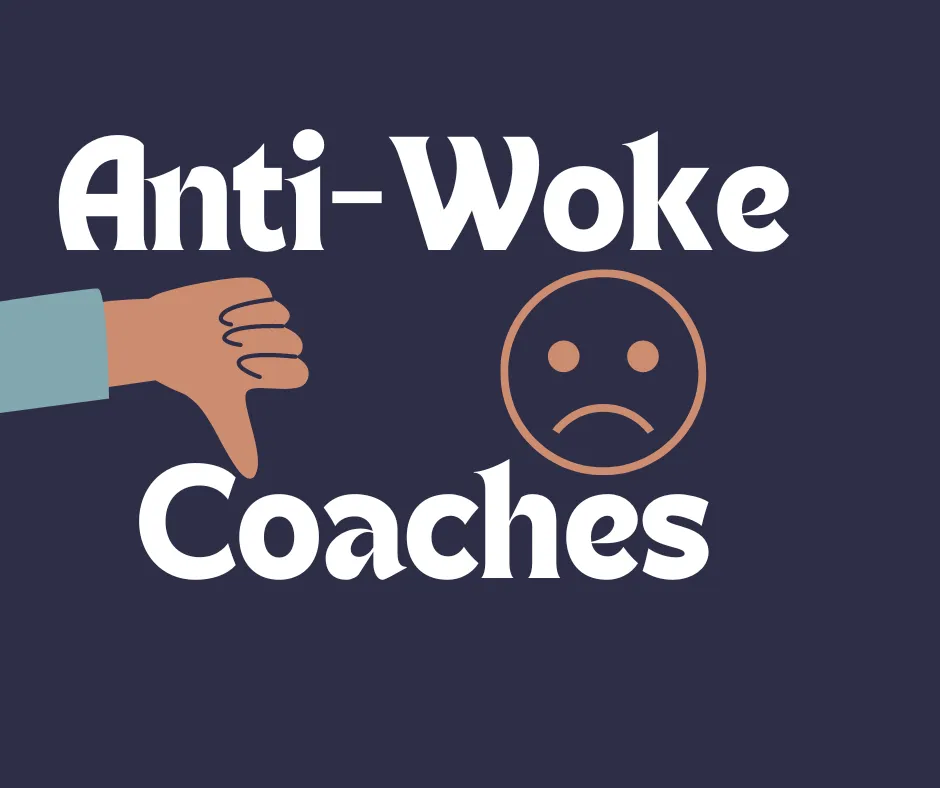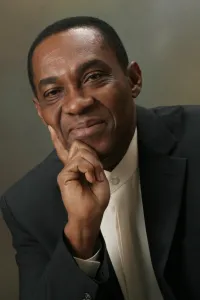The Me Mastery Blog
Take Actions That Change Your Life For The Better!

Why Anti-Woke Individuals Make Poor Coaches
Why Anti-Woke Individuals Make Poor Coaches
A Call for Socio-Cultural Competence in Coaching
Today, the field of coaching has grown rapidly and multitudes of people around the world are reaping the benefits of expert coaching. In the areas of professional development and personal growth, coaching serves as a pre-eminent method of guidance, support, and empowerment.
Today, the numbers of people certified and qualified to provide coaching has multiplied in keeping with the demand for their services. However, not all individuals are equipped to excel in this role. Among those ill-suited for coaching are individuals who are staunchly anti-woke – those who reject notions of social consciousness, empathy, and awareness. In this article, I dive into the reasons why anti-woke individuals make poor coaches, and why clients seeking transformation and growth should be wary of such individuals.
1. Lack of Empathy: Central to effective coaching is the ability to empathize with clients, to understand their struggles, aspirations, and challenges irrespective of their backgrounds, ethnicity or how they identify themselves. Anti-woke individuals often lack empathy, as they dismiss the backgrounds, experiences and perspectives of marginalized groups. Without empathy, coaches cannot establish the trust and rapport necessary for meaningful client-coach relationships.
Empathy is the cornerstone of effective coaching. Clients seek coaches who can understand their experiences and emotions, providing a safe space for vulnerability and growth. Anti-woke individuals, by challenging the identity of some individuals or groups, and by denying the validity of the experiences of other people, fail to cultivate this essential quality, hindering their ability to connect authentically with clients.
2. Limited Perspective: Coaching requires a broad and inclusive perspective, one that acknowledges the complexities of human experiences, backgrounds, identities and societal dynamics. Anti-woke individuals, however, often possess a narrow worldview, rooted in privilege, unilateral identity, and blind ignorance. They may overlook systemic barriers and biases that impact some of their clients, leading to superficial or ineffective coaching interventions.
Effective coaching transcends individual perspectives, recognizing the interconnectedness of personal and societal dynamics. Anti-woke individuals, constrained by their limited worldview, are ill-equipped to navigate the complexities of the lives of many potential clients. Their coaching may lack depth and relevance, failing to address the root causes of clients' challenges some of which may lie in oppression, suppression, and exclusion.
3. Resistance to Growth: Coaching is about facilitating growth and transformation in clients' lives, guiding them towards their goals and aspirations. Anti-woke individuals, however, are often resistant to change, clinging to outdated beliefs and ideologies. This resistance impedes their ability to challenge and support clients in their journey towards self-discovery and individual empowerment.
Clients seek coaches who can inspire and empower them to embrace change and unlock their full potential. Anti-woke coaches, mired in resistance and rigidity, cannot effectively guide clients through the transformative process that they seek and need. Their coaching may reinforce limiting beliefs and hinder clients' progress towards the growth, success and fulfillment as determined by the clients themselves (and not by the anti-woke coach).
4. Ineffective Communication: Effective coaching hinges on clear and open communication between coach and client, fostering understanding, trust, and collaboration. Anti-woke coaches, however, may struggle with communication, as their conscious or unconscious biases and prejudices may manifest in their language, guidance, perspectives and interactions. This can create barriers to effective coaching and hinder clients' ability to express themselves fully, articulate their needs and follow through on paths to success.
Communication is the lifeblood of coaching, facilitating deep connections and meaningful insights. Anti-woke individuals, constrained by their biases and prejudices (conscious or implicit), may inadvertently (or purposefully) alienate or invalidate clients' experiences through their communication style. This can erode trust and hinder the coaching process, limiting clients' ability to explore and address their challenges.
5. Lack of Socio-Cultural Competence: In today's diverse and interconnected world, coaching demands socio-cultural competence – the ability to navigate and respect diverse cultural perspectives and experiences. Anti-woke coaches, however, may lack this essential skill, as they dismiss or undermine the significance of cultural and social differences. This can lead to cultural insensitivity and harm in the coaching relationship.
Socio-cultural competence is vital for effective coaching, enabling coaches to honor and respect clients' social and cultural identities and experiences. Anti-woke coaches, blinded by their own biases, may (purposefully or otherwise) overlook or marginalize the cultural and social dimensions of clients' lives. This can result in misinterpretation, miscommunication, and even harm in the coaching relationship, undermining clients' trust, and in turn, their progress.
In conclusion, coaching requires a deep commitment to empathy, awareness, and growth – qualities that anti-woke individuals often lack. Clients seeking transformation and empowerment deserve coaches who can understand, support, and empower them authentically. By recognizing the limitations of anti-woke coaching, clients can make informed choices that align with their values and aspirations for growth.
If you are a coach with anti-woke leanings, feelings or mentality, I urge you to restrict your services to those who think like you and behave like you. I urge you not to represent yourself as being open to all clients because when you do so you will cause more harm than good… consciously or unconsciously… inadvertently or… willfully!
Dr. Marcus Mottley is a Clinical Psychologist, Author and an Executive, Neuroscience and Positive Psychology Coach. He can be reached at www.MeMasteryProgram.com or www.MarcusMottley.com You can get his books at www.Amazon.com
© 2025 All Rights Reserved - Dr. Marcus Mottley

